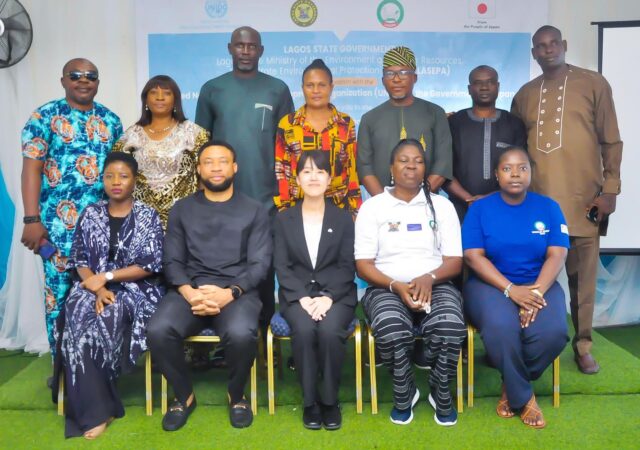Deaths from the Cholera Outbreak have spiked to 29 in Lagos alone, with an increase in number of suspected cases estimated at 579 and 43 confirmed cases.
This was disclosed today at a press briefing by the Lagos State Commissioner of Health, Prof. Akin Abayomi.
While the deaths are heartbreaking enough, it was revealed that Secondary Schools might be more at risk than other Institutions with 209 suspected cases; while primary health centers and private institutions follow closely with 193 and 152 cases respectively.
The Health Commissioner stated that the number of deaths rose due to late presentation by the decedents to the hospitals for treatment.
Prof. Abayomi confirmed that the state government had embarked on active case search and contract trace, by rapid response and surveillance teams to locate all those infected and halt the spread of the virus.
He urged Lagosians with suspected cases to report to the hospitals as treatment is free in a bid to curb the spread.
The Commissioner listed the symptoms of Cholera to include:
• profuse diarrhea
• vomiting
• fatigue
• fever
• abdominal cramps
• shock
Suspected cases are to receive immediate Oral Rehydration Therapy (ORT) before hospitalization.
According to Prof. Abayomi, “We have continued inspection of cases in mostly affected places and intensified sensitisation to ensure Lagosians are aware.”
Prof. Abayomi stated that the government had adopted the OneHealth approach to providing a response with the establishment of an emergency center. This center has the Lagos Governor as Incident Commander, the Commissioner of Health as Deputy Incidnet Commander and driving a multi-agency collaboration with the Ministries of Environment and Water Resources, Information and Strategy, Physical planning and Agriculture to curb the outbreak and prevent future occurence.
He also stated that the Directorate of Environmental Health and Lagos State Environmental Protection Agency (LASEPA) are collecting samples of water, food, and beverages to determine source of outbreak.
Other interventions include:
• Ongoing inspections of facilities in affected areas.
• Prepositioning cholera kits in health facilities statewide.
• Distribution of Oral Rehydration Solutions (ORS) and
• Risk Communication and Public health education campaigns commenced and intensified.
Abayomi listed areas with the highest cholera burden to include Lagos Island, Eti-Osa and Kosofe Local Governments, while there are cases in Ajeromi, Ifako Ijaiye, among others.
He therefore urged residents to support the government by adhering to public advisories and being watchful.







